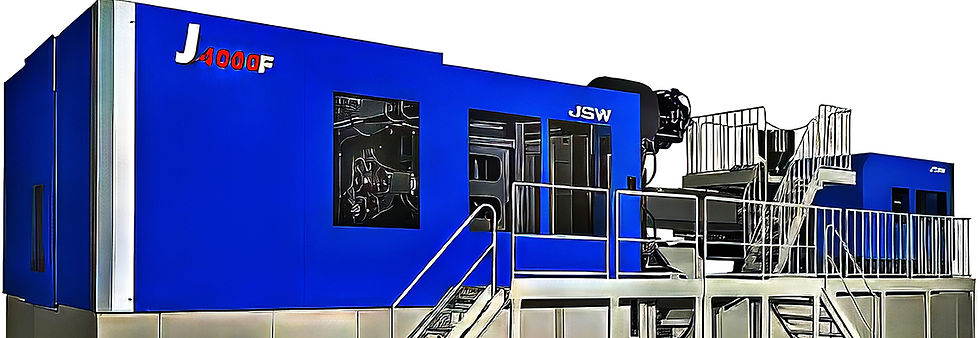FerrumFortis
LKAB Names Johan Menckel New CEO To Lead Green Transformation & Rare Earth Ambitions
2025年7月15日星期二
Quota Quandary Quenches Quixotic Hopes Temporarily
In June, Brazil’s steel import landscape saw a fleeting dip, with flat steel purchases falling by 12%. While on paper this seems promising for local producers, trade experts quickly clarified that the drop was less a sign of structural correction and more a tactical pause. As importers adapted to the freshly renewed quota system, many recalibrated shipping schedules to avoid breaching thresholds early in the cycle. It reflects a market that is as adaptive as it is relentless, and underscores the limited reach of quotas alone.
Flat Figures Fade Briefly Before Buoyant Bounce
Flat steel products, vital for Brazil’s booming construction, household appliances, & auto manufacturing, continue to see robust demand. Analysts at São Paulo-based consultancy Centro de Aço explain that June’s pause doesn’t fundamentally alter underlying trends. “Once the market digests new quota allocations, volumes tend to rebound,” said one senior analyst, highlighting that Brazil’s economic activity still sustains strong appetite for imports, especially when overseas prices remain appealing.
Analysts Articulate Alarming Armour Weakness
Specialists across the steel value chain have voiced concern that quotas, while politically palatable, function as a permeable barrier against aggressive international competition. Without reinforcing them with antidumping duties or safeguard tariffs, Brazil risks an unbalanced market. “The absence of more muscular trade remedies,” warns an analyst from Federação das Indústrias de São Paulo, “leaves national mills fighting with one hand tied, especially against lower-cost producers from Asia and Eastern Europe.”
Demand Dynamics Defy Defensive Designs
The resilience of local demand remains a stubborn reality. Brazil’s sprawling infrastructure projects, urban expansion and steady consumer goods production keep the need for flat steel high. Even as quotas attempt to pace the flow of imported steel, manufacturers find ways to adjust. Importers often front-load purchases early in quota cycles or pivot to alternative product categories not strictly covered by quotas, diluting the intended market protection.
Global Gluts Grapple with Government Guardrails
Brazil’s challenges mirror global patterns: overcapacity in the world steel industry, driven largely by Asian producers, means abundant, competitively priced steel on the international market. While countries like the United States & European Union have enforced more comprehensive trade barriers, including antidumping tariffs and stringent surveillance measures, Brazil has leaned heavily on quota mechanisms. Critics argue these tools alone cannot address dumping practices or subsidised foreign production.
Policy Paradoxes & Protective Puzzles
The tension between protecting local mills and ensuring affordable input costs for downstream industries creates policy dilemmas. Domestic producers warn that continued high import levels threaten jobs, investment & national capacity. Yet construction firms, appliance makers and automakers benefit directly from competitively priced imported steel, helping them keep project costs lower. Policymakers tread a fine line, and the renewed quota system reflects this balancing act, offering some relief to local mills without dramatically spiking steel prices for end-users.
Steel Sector’s Stoic Struggle Stirs Strategic Shifts
Brazilian producers have been pushing for tougher trade remedies. They point to falling margins, idled capacity, and fears over long-term investment. “We can compete on quality and efficiency, but not against subsidised imports,” argues a representative from Instituto Aço Brasil. Meanwhile, large importers defend their role, arguing that affordable steel is critical for national growth. Amid these debates, the broader market reality persists: demand shows little sign of weakening, and global price pressures remain.
Future Forecasts Fuel Fluctuating Fortunes
Looking ahead, market watchers anticipate that steel imports will stay elevated in the medium term. The quota system may temper extreme surges, but as long as global prices remain attractive & Brazil’s domestic demand holds steady, significant declines in import volumes seem unlikely. New investments in local capacity and potential trade policy recalibrations could reshape this picture, but for now, the Brazilian steel sector remains locked in a complex tug-of-war between open market forces and targeted protectionism.
Key Takeaways:
June saw a brief 12% drop in flat steel imports, largely tied to quota renewal pause
Analysts warn quotas alone can’t counter cheap global steel without tougher trade tools
Strong domestic demand continues to keep import volumes high despite controls
FerrumFortis
Brazil’s Brazenly Buoyant Steel Buys Besiege Quota Shield
2025年7月15日星期二
Synopsis: -
Steel imports into Brazil remain stubbornly high despite the government’s renewed quota system. June saw a brief 12% drop in flat steel purchases, driven mostly by importers pausing to adjust strategies after the quota renewal. Analysts argue that without stricter trade defense tools like antidumping tariffs, Brazilian mills remain exposed to fierce international competition, while demand in construction, appliances & automotive keeps fuelling imports.



















